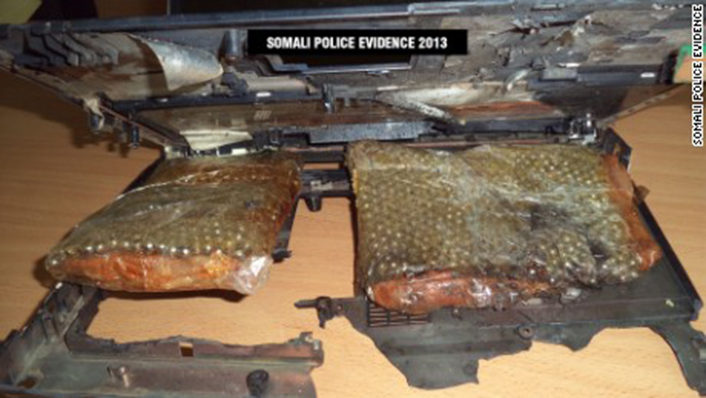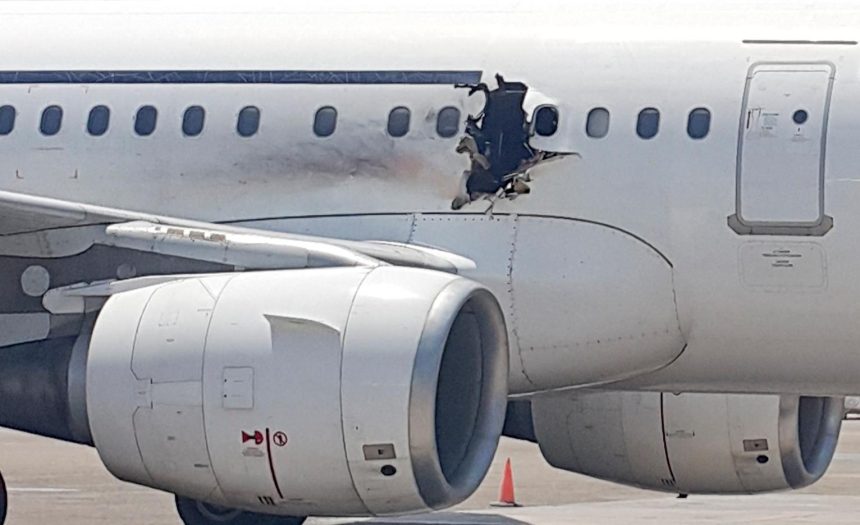Leaks and Media Reports Suggest Laptop Ban Linked to Jan. 28 SEAL Raid on Yemen.
Unattributed quotes from “three intelligence sources” link evidence gathered during the U.S. Navy SEAL raid in Yemen on Jan. 28, 2017 with the new ban on electronic devices including laptops in the passenger cabins of some airline flights.
Journalists Jana Winter and Clive Irving have published reports attributing the anonymous media leaks in at least one media outlet, the Daily Beast. It is possible that other media outlets will report on the connection between the events.
Winter and Clive wrote, “Information from the raid shows Al Qaeda’s successful development of compact, battery bombs that fit inside laptops or other devices believed to be strong enough to bring down an aircraft, the sources said.”
Winter and Clive did not name any sources for their report. It is an occasional practice in the intelligence community to intentionally “leak” reports for publication, and then measure public response to the leaks to make decisions about additional, more official media releases.

One U.S. Navy special operations team member, Chief Petty Officer William “Ryan” Owens, was killed during the January 28 raid on the Al Qaeda installation in the Yakla Region of Baida Province, Yemen. A U.S. Marine MV-22 Osprey tilt rotor aircraft from the USS Makin was destroyed by a U.S. airstrike after it was abandoned on the ground following damage from a hard landing in the operation.
The U.S. Department of Homeland Security officially cited the Oct. 31, 2015 destruction of the Russian MetroJet (Kogalymavia) flight 9268 as a bomb over the Sinai Desert after departing Sharm El Sheikh International Airport, Egypt. Homeland Security officials also named the Djibouti-bound Daallo Airlines flight D3159 damaged on Feb. 2, 2016 as being linked to the reasons for the recent changes in airline security. These incidents likely contributed to the motive for the U.S. Navy SEAL raid in Yemen on Jan. 28, 2017 and this subsequent recent change in airline security.
In the Russian Metrojet attack a laptop bomb was suspected while a bomb carried by a man traveling in a wheelchair damaged the Daallo flight. The Daallo flight bomber detonated his bomb, possibly contained in a laptop, cell phone or his wheelchair, near the starboard wing root of the aircraft. The bomber presumably felt the most structural damage could be done near the wing root, intending to detach the wing in flight. The Daallo Airlines Airbus A321-111 survived the attack and returned to Aden Adde International Airport in Somalia, Mogadishu for an emergency landing.
An additional flight, EgyptAir flight 804 from Paris to Cairo, crashed on May 19, 2016 over the Mediterranean, killing all 66 passengers and crews. Numerous subsequent reports indicated that traces of explosives were found on the bodies of victims from the flight recovered at sea.
Major media outlets like CNN and the BBC have not yet reported on any alleged connection between the U.S raid in Yemen on January 28 and the changes in airline security. Over a month ago David Sanger, writing for The New York Times, reported, “It’s hard to call this [raid] much of a success yet, because we don’t know what the value was of the information they were trying to exploit, which came mostly from computers and cell phones. And from everything we have heard, they haven’t had a chance to assess that yet.” That report was published in the New York Times on February 2. These emerging reports and new airline restrictions may suggest the intelligence gathered in the raid may now have yielded some actionable outcomes.
Top image: Damage from a bomb detonated on board Daallo Airlines Flight 159 Over Somalia on February 2, 2016 (credit: GoobjoNews).














